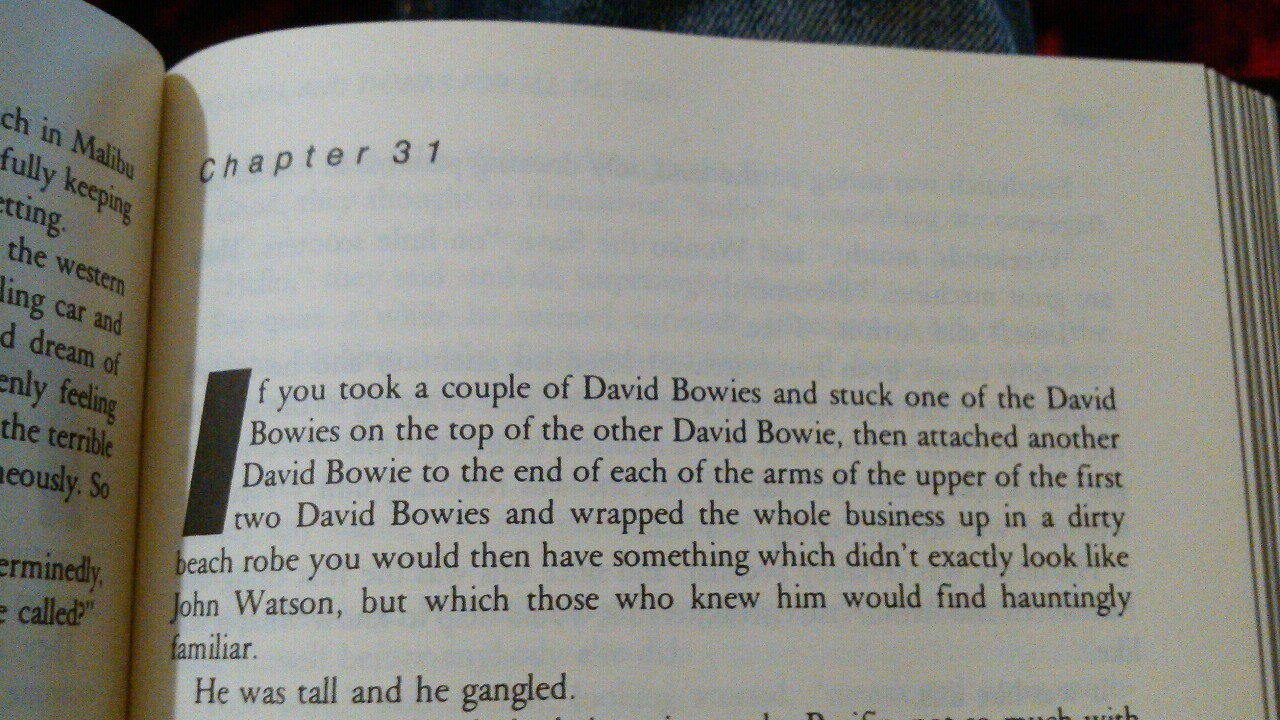petermorwood: solikerez:marsdaydream:drinkmasturbatecry:nudityandnerdery:the-fandoms-are-val
petermorwood: solikerez: marsdaydream: drinkmasturbatecry: nudityandnerdery: the-fandoms-are-valentines: grandtheftautosanandreas: Douglas Adams is the best when it comes to describe characters they need to teach classes on Douglas Adams analogies okay “He leant tensely against the corridor wall and frowned like a man trying to unbend a corkscrew by telekinesis.” “Stones, then rocks, then boulders which pranced past him like clumsy puppies, only much, much bigger, much, much harder and heavier, and almost infinitely more likely to kill you if they fell on you.” “He gazed keenly into the distance and looked as if he would quite like the wind to blow his hair back dramatically at that point, but the wind was busy fooling around with some leaves a little way off.” “It looked only partly like a spaceship with guidance fins, rocket engines and escape hatches and so on, and a great deal like a small upended Italian bistro.” “If it was an emotion, it was a totally emotionless one. It was hatred, implacable hatred. It was cold, not like ice is cold, but like a wall is cold. It was impersonal, not as a randomly flung fist in a crowd is impersonal, but like a computer-issued parking summons is impersonal. And it was deadly - again, not like a bullet or a knife is deadly, but like a brick wall across a motorway is deadly.” And, of course: “The ships hung in the sky in much the same way that bricks don’t.” the one that will always stay with me is “Arthur Dent was grappling with his consciousness the way one grapples with a lost bar of soap in the bath,” i feel like that was the first time i really understood what you could do with words. I will reblog this every time I see it because these are some of my favorite sentences in the English language. I FUCKING LOVE DOUGLAS ADAMS, HITCHHIKER’S GUIDE TO THE GALAXY IS LIKE MY FAVORITE THING The trick is to get something like this into writing that’s not-Adams, not-Pratchett, not-Wodehouse (never forget P.G. Wodehouse! there’s an entire book full of his stingers) and perhaps most difficult, not-done-for-humorous-effect. (Even the “hatred” quotation has a touch of bitter humour.) Original metaphors and similes are the opposite of cliché, but paradoxically their originality tends to make them an eye-catching distraction. This is something to bear in mind. If, at that precise moment of story, what you’re writing will accept a beautifully polished phrase high-kicking the Original Metaphor Can-Can through the first-class carriage of your reader’s train of thought, then go for it. Otherwise, perhaps not right there and then. Clichés (and the often-dismissed “said” as part of dialogue) may not be sparkling or original, but they’re also non-intrusive and the clarity of their meaning has developed over decades of use. They allow the actual storytelling process to continue without the juddering pause that results when some Splendid Figure Of Speech steps forward to be admired at the wrong time, like an uninvited tuba solo at a funeral no matter how well-played. In Adams, Pratchett, Wodehouse and numerous other writers, a lavish use of Splendid Figures Of Speech is integral to their style; in other writers, in the wrong place, they can have a similar effect on the narrative as a brick through James Bond’s windscreen without any explanation before or after, leaving the reader going “Wait, what, why?” while the story has to take care of its own momentum - which, like any speeding car with a brick through the windscreen, is seldom a good idea. All of this is IMO. YMMV. -- source link
Tumblr Blog : kingwizardandthelizardgizza-blog.tumblr.com
#literature
